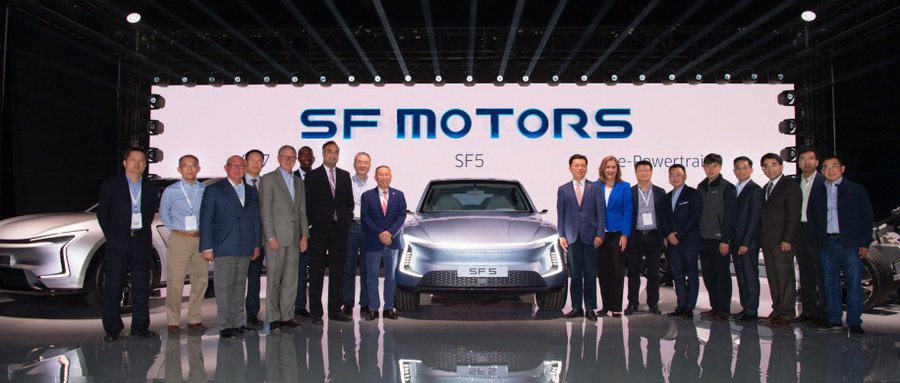SF Motors Reveals Two New Long-Range Electric SUV Concepts

The first car – SF5 – is a medium size crossover SUV, while SF7 is a full-size one.
SF Motors intends to open pre-order books this year for the SF5 and start deliveries in 2019. We don't know the timeframe yet for the SF7.
Production will take place in Chongqing, China and in Indiana in a facility acquired in late 2017 that previously was making Hummers.
Interesting is that SF Motors is going all-in on vertical integration, as production will include 21700 battery cells and powertrains (and those will be available to others).
Volume targets are 150,000-200,000 cars annually at some point in the future.
In top spec, the SF7, with four motors, will do 0-60 mph in less than three seconds, will offer up to 500 km (310 miles) of NEDC range and system output of 800 kW (1,073 hp). Of course, all the autonomous driving tech is envisioned in the project, too.
SF Motors acquired in October InEVit, founded by former Tesla CEO Martin Eberhard, who now is chief innovation officer at SF Motors.
SF Motors has ambitions to not only produce cells, modules and packs, but also to conduct research into solid-state batteries. The current cells are rated at up to 280 Wh/kg, while the pack is at 160 Wh/kg, according to the presentation.
"InEVit Inc., an electric vehicle (EV) battery modularization startup headed by industry trailblazer and former Tesla CEO, Martin Eberhard. The company has developed and patented a unique EV chassis architecture, battery module design innovations and manufacturing techniques that will allow the EV industry to rapidly scale manufacturing of cost-and-feature-competitive vehicles. The pre-revenue company will become a wholly owned subsidiary of SF Motors, and will continue to market and license its innovations to competitive vehicle OEMs."

Nouvelles connexes


